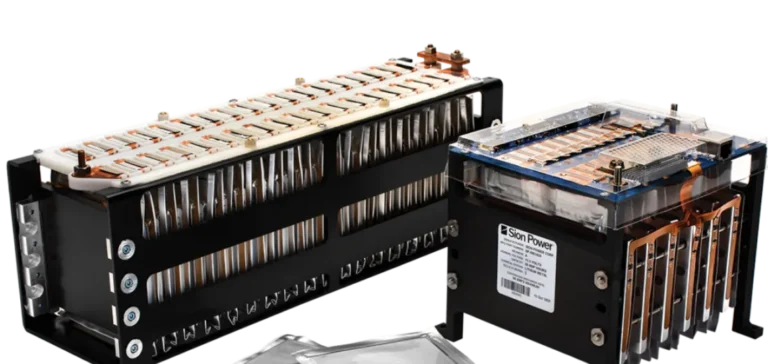US battery manufacturer Sion Power has developed a vacuum deposition technology capable of producing lithium-metal anodes with thicknesses as low as 2 microns. This process aims to replace traditional mechanical rolling methods, which limit lithium thickness to between 30 and 50 microns and require industrial additives.
A technology designed for high-throughput production
The process is based on continuous thermal evaporation, known as “roll-to-roll”, allowing lithium to be deposited directly onto copper foil at controlled speeds. This system ensures precise control over the thickness and uniformity of the deposit, while eliminating the need for lubricants. The approach developed by Sion Power is optimised for industrial scale-up, with gigawatt-scale production capacity planned in the United States.
The company states that the technology also enables engineered surfaces with specific coatings, helping to improve lithium stability. In tests conducted with industrial partners, 5-micron films reportedly delivered twice the lifespan compared to competing materials.
Reduced active material and application flexibility
By controlling lithium thicknesses from 2 to 50 microns, the process significantly reduces the volume of active material while adapting performance to different applications. This technical flexibility is intended to optimise production costs and meet the requirements of the mobility and stationary storage sectors.
Tracy Kelley, president and chief science officer of Sion Power, stated that this innovation positions the company as a leader in lithium-metal anode technology. According to him, developing a process entirely dedicated to batteries, without repurposing multisector technologies, gives the company a distinct advantage.
Integration into Licerion® cells and industrial validation
The process is already integrated into the production of Licerion® format cells, manufactured at the Tucson facility. The company reports that the method has been validated through customer collaborations, including detailed analyses of throughput and production costs.
Sion Power presents this process as a domestic production solution capable of meeting growing demand for high-density batteries. “We see our technology as the industry standard for thin lithium films,” Kelley stated, highlighting the process’s maturity for large-scale commercialisation.





















